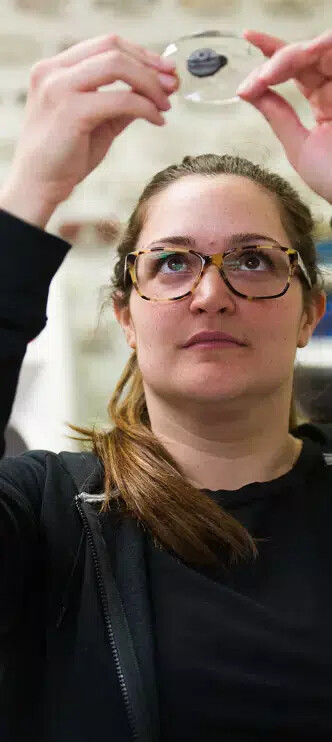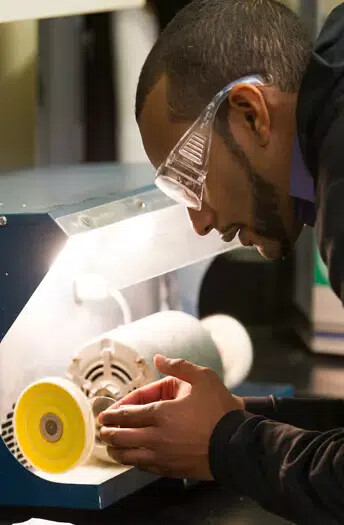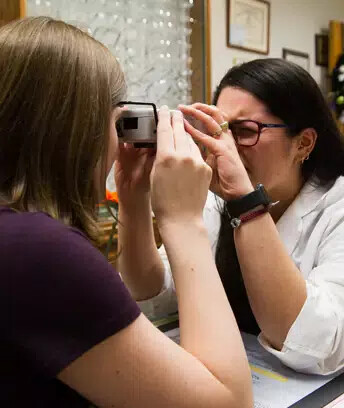RVCC OPTICAL CLINIC
A teaching clinic for the students in the Ophthalmic Science program. It is open to RVCC students, faculty and staff only.
The students operate the clinic under the direct supervision of a licensed optician. While working in the clinic, the student opticians have the opportunity to gain the knowledge, skills and values required to correctly and accurately dispense eyeglasses and contact lenses. The student optician learns to interpret ophthalmic prescriptions, evaluate the patient's visual and lifestyle needs, and to select the appropriate frames, lens materials and/or lens treatments. In addition, the student optician learns the correct fitting, adjustment and adaptation of ophthalmic appliances to the patient. Our most recent graduates have reported a 100% passing rate for both the State Board written and practicum examinations. In addition, they also report a 100% employment rate in the optical industry.
LOCATION
College Center, Lower Level
908-526-1200 x8261
HOURS
Mondays 7-10pm and Wednesdays 10am-1pm
PATIENT INFORMATION
The patient who wishes to utilize our clinical services will receive the highest quality services and goods. Charges are made to cover the cost of materials and associated expenses. The individual cost will vary depending upon the frames and/or lenses selected. However, this cost is a mere fraction of the retail price. The patient will be expected to work within the time frame of the clinic schedule. We will strive to meet all individual time requirements, but not at the expense of the educational endeavor. Most prescriptions will be completed in one to two weeks.
In addition, the clinic is available for
- Spectacle repairs and adjustments
- Contact lenses
- Prescription and non-prescription sunglasses
- Eyeglass cleaning supplies
You may bring in your eyeglass or contact lens prescription or we may copy your existing eyeglass prescription.





